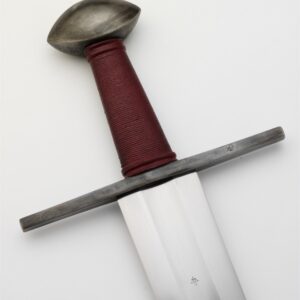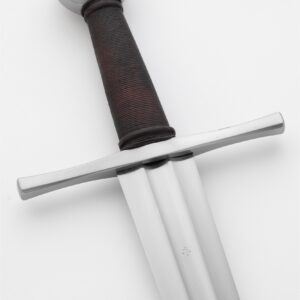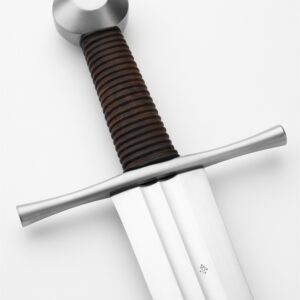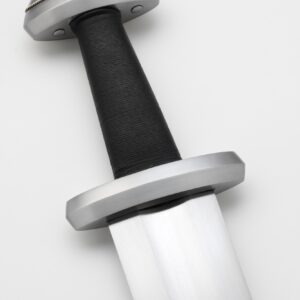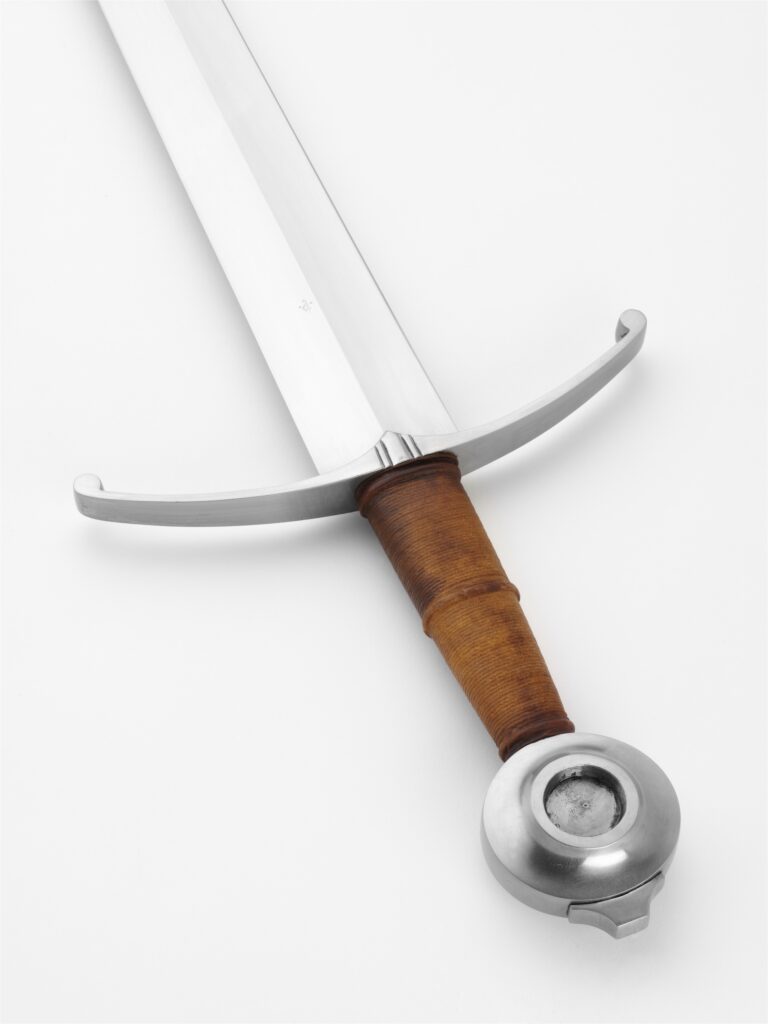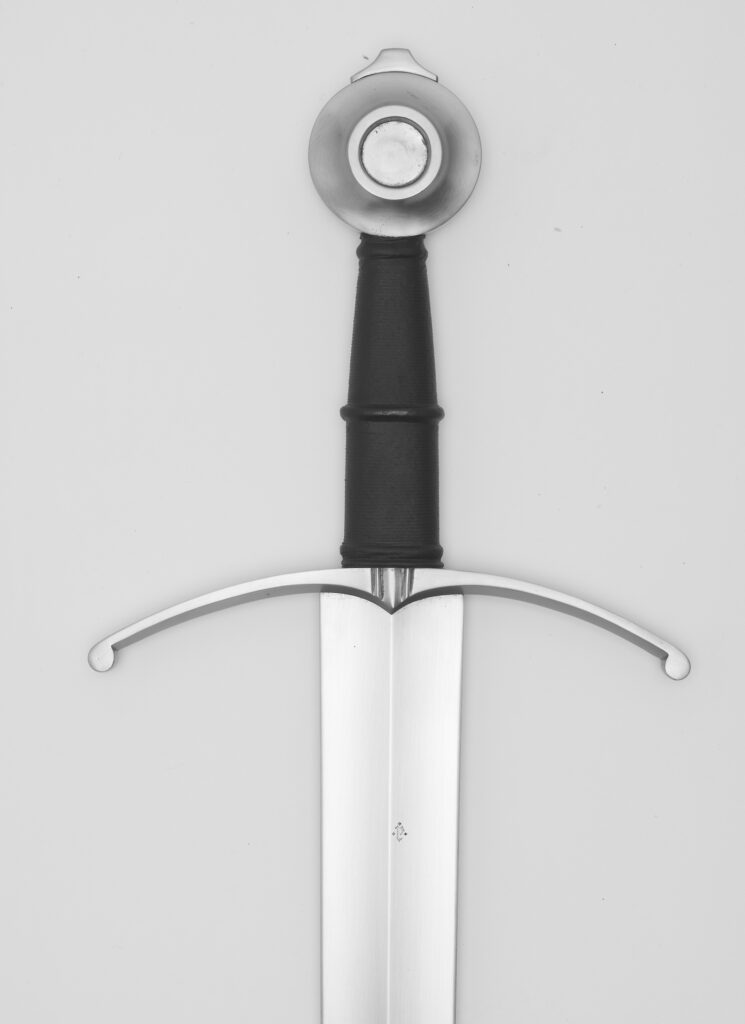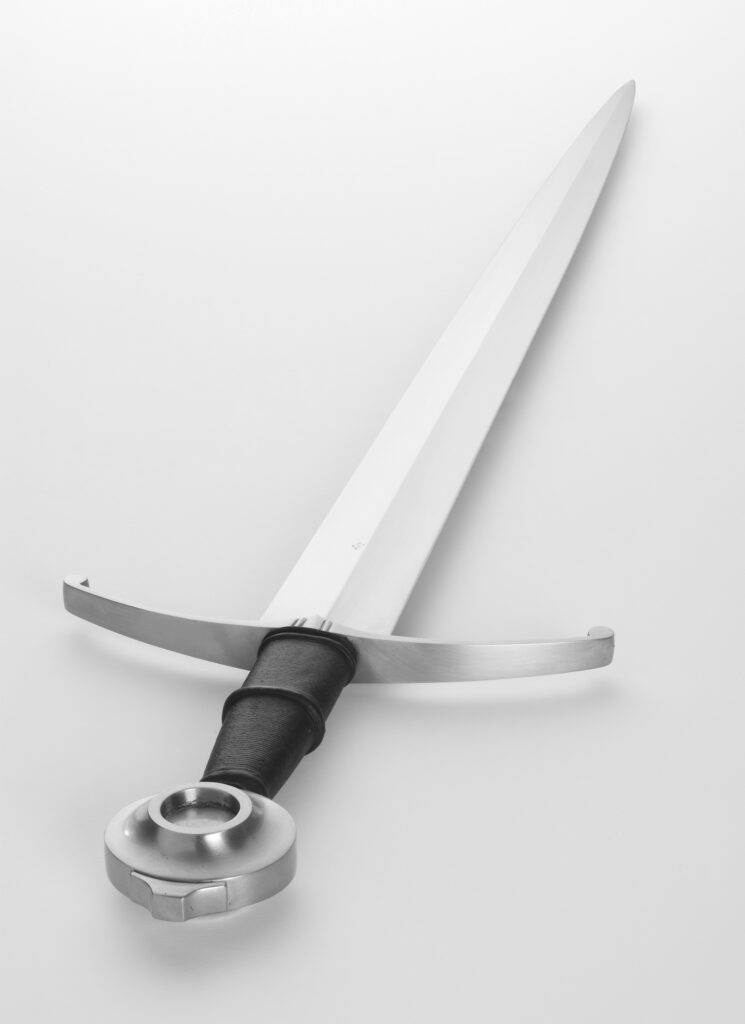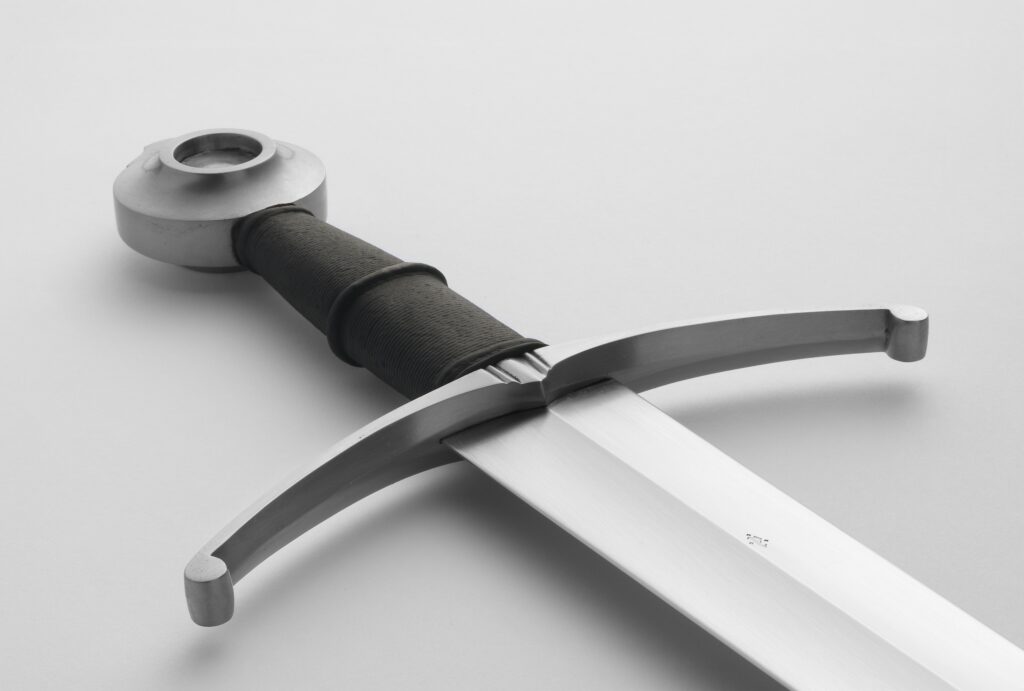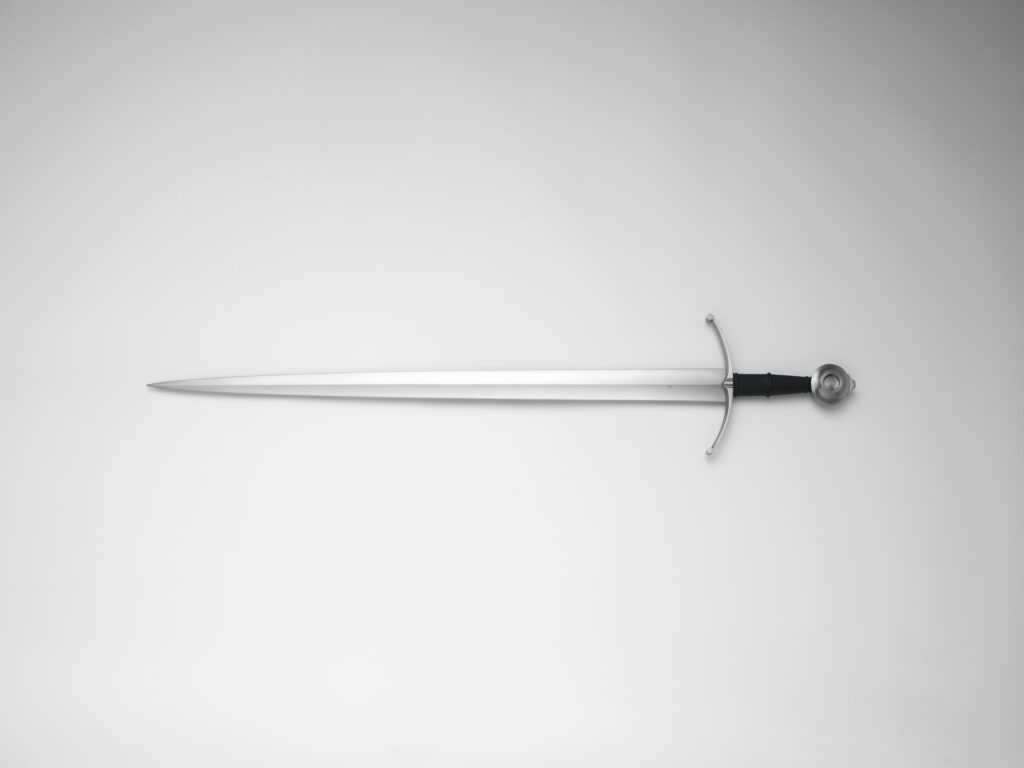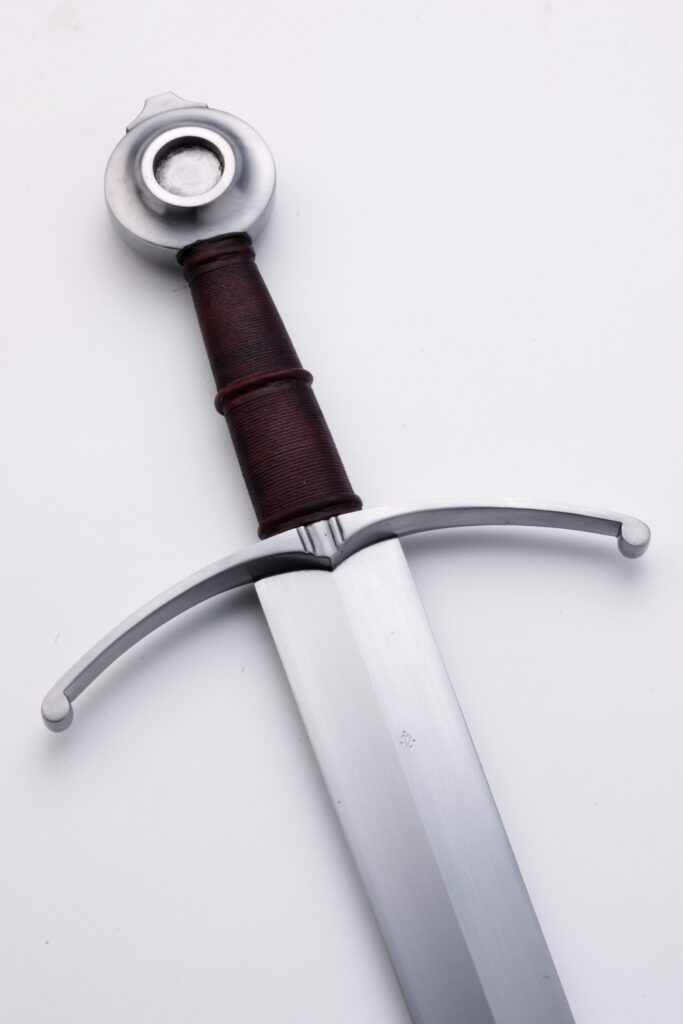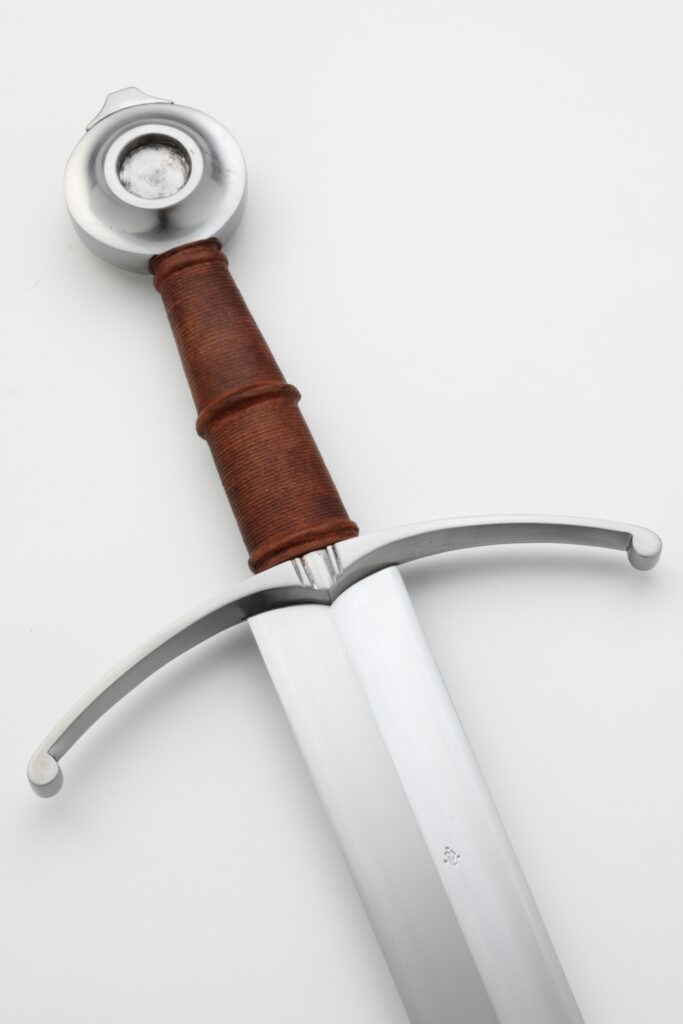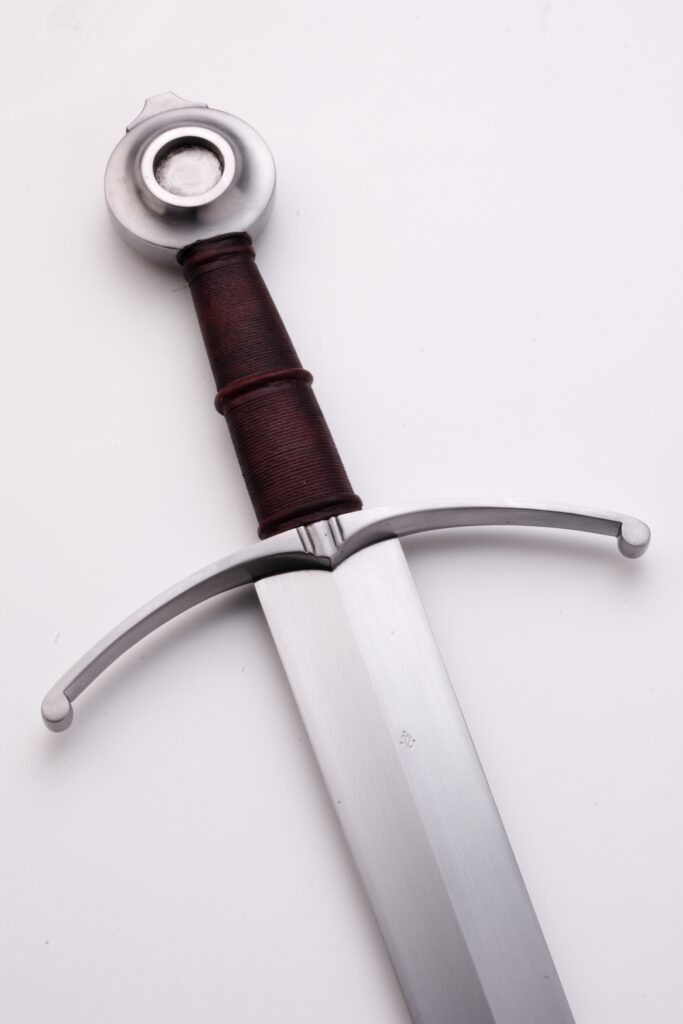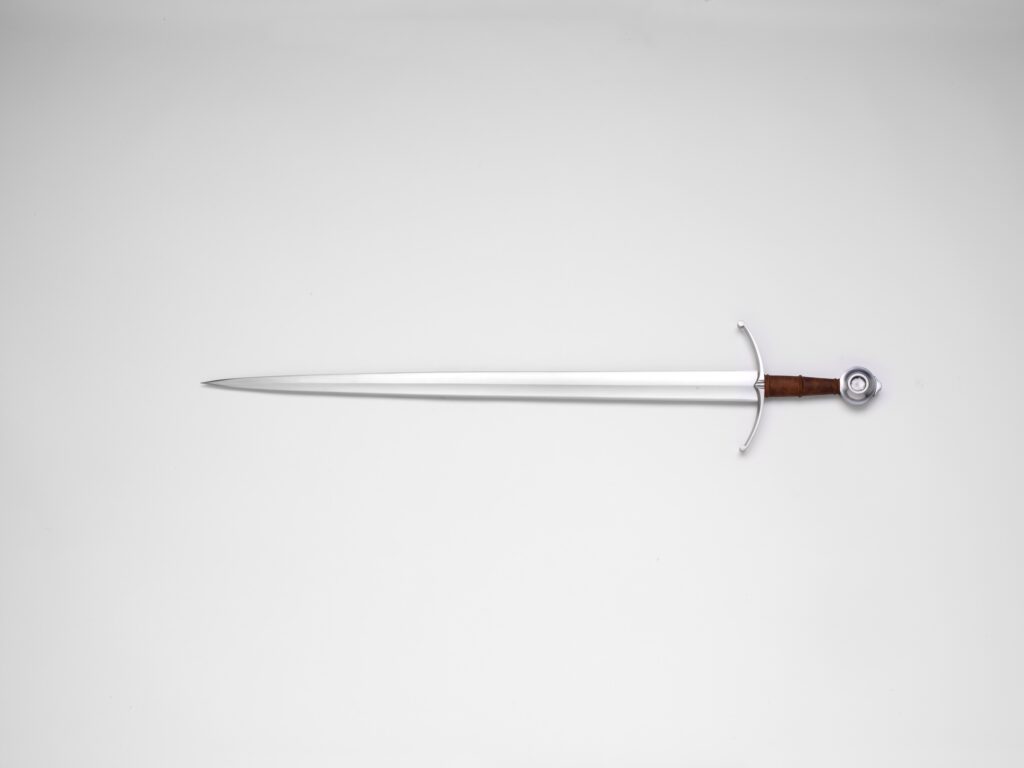(Oakeshott Type XVIII)
On English effigies commemorating lords and knights from the mid- to late- 15th C, we can see that many favoured a single hand cut & thrust sword of elegant design. They are often of Oakeshott type XVIII or sometimes XV. Surviving examples of these swords are among the most handsome and impressive examples of the swordmaker’s art throughout the medieval period. They combine sturdy functionality with beautiful proportions and exquisite handling characteristics. Short and quick they are capable of shearing cuts and precise thrusts. Many of these swords have an eleganlty arched cross guard of style 9 with highly defined shape cut in planes and bevels. The wheel pommel of type K with recessed central surfaces is a style that regains popularity at the end of the century. We choose name this sword the Kingmaker, alluding to one of the most dynamic and well known players for power in the Wars of the Roses: Richard Neville, Earl of Warwick (1428 – April 14, 1471) This sword is a good example of those knighlty weapons of moderate length that were so popular during his time. The blade is a fine example of a type classified as Oakeshott XVIII (according to Oakeshott’s The Sword in the Age of Chivalry), combining broad width at the cutting section with a strong awl-shaped point. It has edges that arc gracefully to an acute point and hollow ground edge bevles. The raised midrib resutls in a superior stiffness while the keen edges are crisp and well defined. A hollow ground blade can have a thick and stiff spine and still be relatively light for its size. This well defined cross section helps in keeping weight down and establishes a quick and responsive balance. The very sharpness is shaped like the point of an apple seed resulting in an edge that is both resilient and efficient. This combines in a blade that is supremely effective in both thrust and cut. The design follows the harmonic principles of the Golden Section, A principle that was used in the planning and construction of major works in architecture, art and crafts of this period. The hilt components are investment cast in mild steel from original waxes carved by Peter Johnsson, based on Peter’s first-hand examination and documentation of period originals of this type. Some customers like to place period coins, religious symbols or heraldry markers inside the pommel recess. The dimension of the recess are: width: 0.85″, depth: 0.187″.
Specifications
Overall length: 39.25″ (99.7 cm)
Blade length: 32.25″ (81.9 cm)
Blade width: 1.87″ (4.75 cm)
CoG: 4.25″ (10.58 cm)
CoP: 19.75″ (50.2 cm)
Weight: 2 lbs 13 oz (1.275 kg)
This sword is offered in a limited edition of 100 swords worldwide
